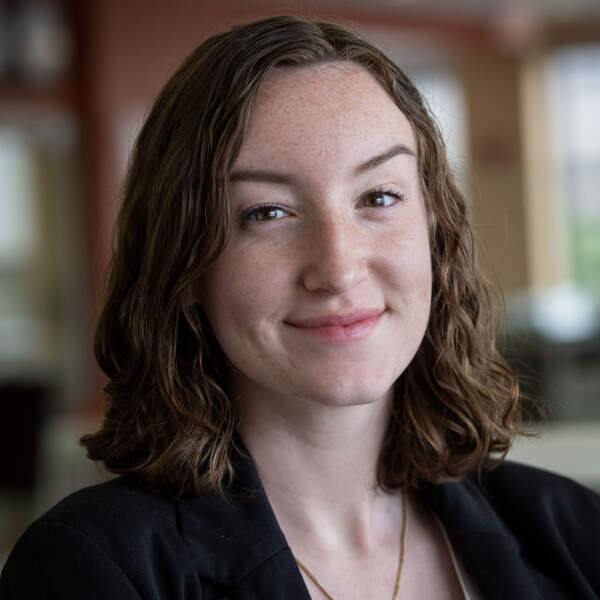Advertisement
Greater Boston communities debate multifamily zoning around MBTA as end-of-year deadline approaches
ResumeCities and towns in Greater Boston are grappling with the implementation of the MBTA Communities Act.
The law, signed by former Gov. Charlie Baker in 2021, requires new zoning laws that allow for multifamily housing units in areas around the MBTA service area. The deadline for the 12 communities in the first phase (those with rapid transit lines) to be in compliance is coming up at the end of December.
Brookline has passed news zoning rules that go beyond the state requirement. Newton is hotly debating whether to do the same.
Deb Crossley, at-large city councilor in Newton, sees this law as a chance to tackle the housing crisis locally. Crossley is a proponent of increasing multifamily zoning in her city, but was voted out of office in early November. She has advocated for creating multifamily zoning in villages across Newton, not just in the immediate areas around MBTA stops.
"Housing is an issue. Our village center economies, our little local economies, are struggling more and more and more as the time passes," Crossley told WBUR. "You see it by high turnover of shops, businesses going out of business, you see vacant storefronts."
Some critics of the law, including Newton City Councilor-Elect Randy Block, point to MBTA shutdowns and slow zones as a reason to not create more dense housing. Block argues new residents may not even use the transit system due to dysfunction and rely on cars instead, creating more traffic.
State Rep. Andy Vargas, the 3rd Essex District representative who help craft the law, said on WBUR's Radio Boston that the issues of MBTA performance should not be a reason to halt rezoning.
"It's a fair point to say that the MBTA is not delivering the service that we're all expecting," said Vargas. "I don't think that that's an excuse for us to not develop the housing necessary to ensure that people have access to the jobs, health care and to ease the housing demand that we're seeing across the region."
Multifamily housing tends to serve Black and brown people, low-income people, and young people, he points out.
"If we're continuing to exclude that type of zoning, then what we have is de facto legalized segregation," Vargas said.
Vargas, 30, lives in Haverhill with his wife and baby. He is part of an age group that is increasingly priced out of Massachusetts. Between April 2020 and July 2022, tax filers between the ages of 26 and 35 left the state at higher rates than any other age group, according to a report from the Massachusetts Taxpayers Foundation.
Vargas argues that among the benefits of creating more multifamily housing is that denser communities can benefit local businesses.
"This is a massive opportunity, a huge opportunity for cities and towns to actually have dense areas where the foot traffic can support small businesses," said Vargas.
In the next phase of implementation, municipalities with commuter rail stops and adjacent communities must comply with the law by the end of 2024. Nearby small towns must adjust their zoning laws by the end of 2025. In total, there are 177 communities that will need to allow for denser housing near the MBTA system.
This article was originally published on November 27, 2023.
This segment aired on November 27, 2023.


